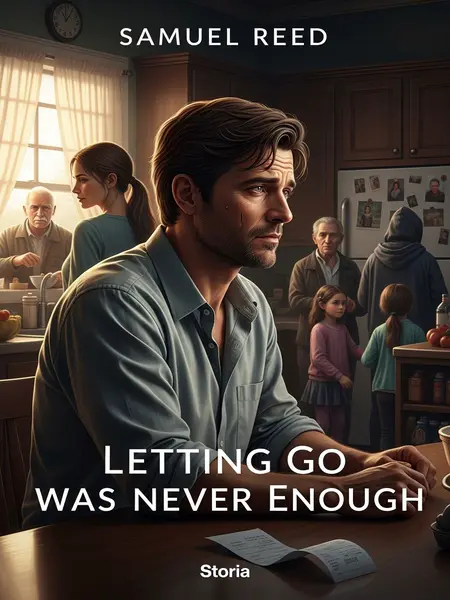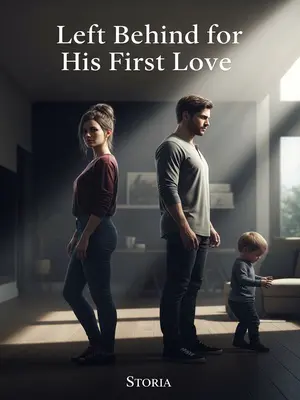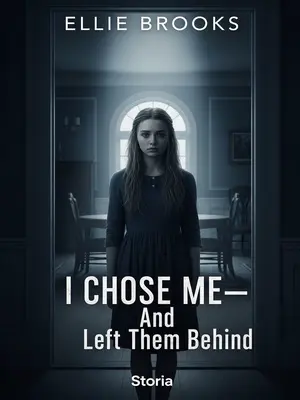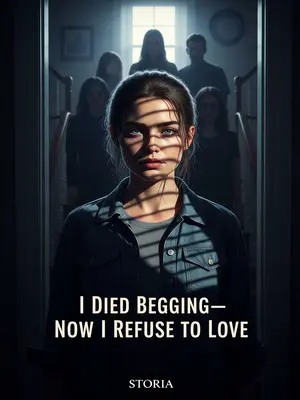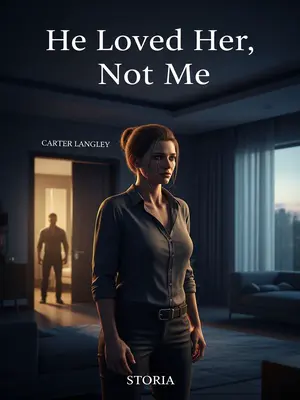Chapter 2: The Letter That Changed Nothing
I’d been waiting outside the post office for three hours, nerves eating me alive.
The morning was sharp and cool, dew shining on the sidewalk. I paced in front of the old brick building, checking my watch every few minutes, stomach in knots. The mail truck was still unloading when I took my spot by the door.
The second the door opened, I was inside.
The bell over the door jingled, echoing through the empty lobby. I barely noticed the clerks’ stares—I was too focused on what might be waiting for me.
“Hi, my name’s Samuel Reed. Is there a certified letter for me?”
My voice cracked, a little too loud. The words rushed out, like if I didn’t say them fast enough, they’d disappear.
My hands wouldn’t stop shaking at my sides. Couldn’t stuff them in my pockets—made me fidget even more. Palms sweaty, heart pounding like it was trying to punch through my ribs.
“Mr. Reed?”
The clerk—a woman with kind eyes and a tired smile—looked up over her glasses. Her voice was gentle, almost like a mom’s. For a second, I felt ten years old again.
“Yes, that’s me.”
I straightened my shoulders, pretending I was more confident than I felt. I could see the letter on the counter, my name written in neat, careful handwriting.
“Certified letter. Please sign here.”
She slid the clipboard toward me, and I grabbed the pen with trembling fingers. The tip scratched the paper as I signed, every letter shaky but determined.
I made sure every letter of my name was clear, like maybe if I did it right, everything else would fall into place. I handed the clipboard back, and she gave me the envelope with a nod.
Then I hurried home, clutching the letter like it was a lifeline.
I tucked it into my jacket and all but ran out, the bell jangling behind me. The walk home felt longer than ever, every step heavy with hope and dread. I kept glancing at the envelope, afraid it might vanish if I blinked.
I’d gotten into State Agricultural College. But with a baby at home, and Lillian chasing her own dreams, I never went.
That acceptance letter was my shot—a real shot—at something better. A way out. But there was a baby to care for, and someone had to stay. That someone was me.
Lillian worked with the local theater troupe. She said she couldn’t give up her dreams for a child, so I gave up my college spot and stayed home to raise the baby instead.
She was always talking about the stage—applause, costumes, how she couldn’t let her talent go to waste. She’d give me those big, pleading eyes, and the guilt would settle on me like a wet blanket. So I put away my own dreams, swapped textbooks for bottles, and told myself it was right.
“Daddy, I’m hungry.”
A little girl ran up and wrapped herself around my leg.
Her hair was a wild mess, cheeks streaked with dirt, but her eyes were bright as ever. She looked up at me, trusting, not knowing what I’d already sacrificed for her.
My jaw tightened, just a little.
I tried to hide my frustration, but it simmered underneath. Still, I couldn’t be mad at her—she was just a kid, caught in a mess she didn’t make.
What else could I do? I went to the kitchen and made her a bowl of scrambled eggs.
I cracked eggs into the battered skillet, the sizzle filling the silence. A splash of milk, a pinch of salt, stirring until they were soft and fluffy. Not much, but warm and filling. I set the bowl in front of her and ruffled her hair as she dug in.
This month, like always, the food stamps and county grocery vouchers had all been mailed by Lillian to Mark’s house next door.
I stared at the empty mailbox, the spot where an envelope should’ve been. It wasn’t the first time, and I doubted it’d be the last. Mark always seemed to get the vouchers, and I was left scraping by, stretching every dollar to feed my kids.
It was like she forgot there was a child to feed at home.
Lillian was always so wrapped up in Mark’s problems, his kids’ needs, she barely remembered we had our own. I’d try to remind her, but she’d wave me off, say Mark had it harder.
All she ever saw were Mark and his two kids.
We were invisible. Just shadows in the background of their struggles. Every call, every letter, every holiday—Mark and his kids came first. I wondered if she even noticed how thin our daughter was getting, how quiet my son had become.
I watched my daughter eat her eggs at the table, then slipped into the bedroom.
She ate with a hunger that made my chest ache. I lingered in the doorway, then slipped away, the weight of everything pressing down. The bedroom felt colder than usual, the walls closing in.
My hands shook as I tore open the certified letter—it was from my old professor.
The handwriting was unmistakable—looping, elegant, full of hope. My heart pounded as I slid the paper free, eyes scanning the words.
In that other life, I got an invitation just like this—my professor asking me to join her team on a volunteer project out on the reservation in New Mexico.
It was huge—a chance to do something real, to learn from the best. My professor believed in me, wrote about the project with excitement, about making a difference, about a future I could be proud of.
The classmates who spent those three years with her all came back with good jobs.
They became teachers, scientists, the kind of people who made the town proud. Their names got mentioned at church, in the paper, at the diner. I used to imagine myself among them, shaking hands, my kids looking up at me with pride.
